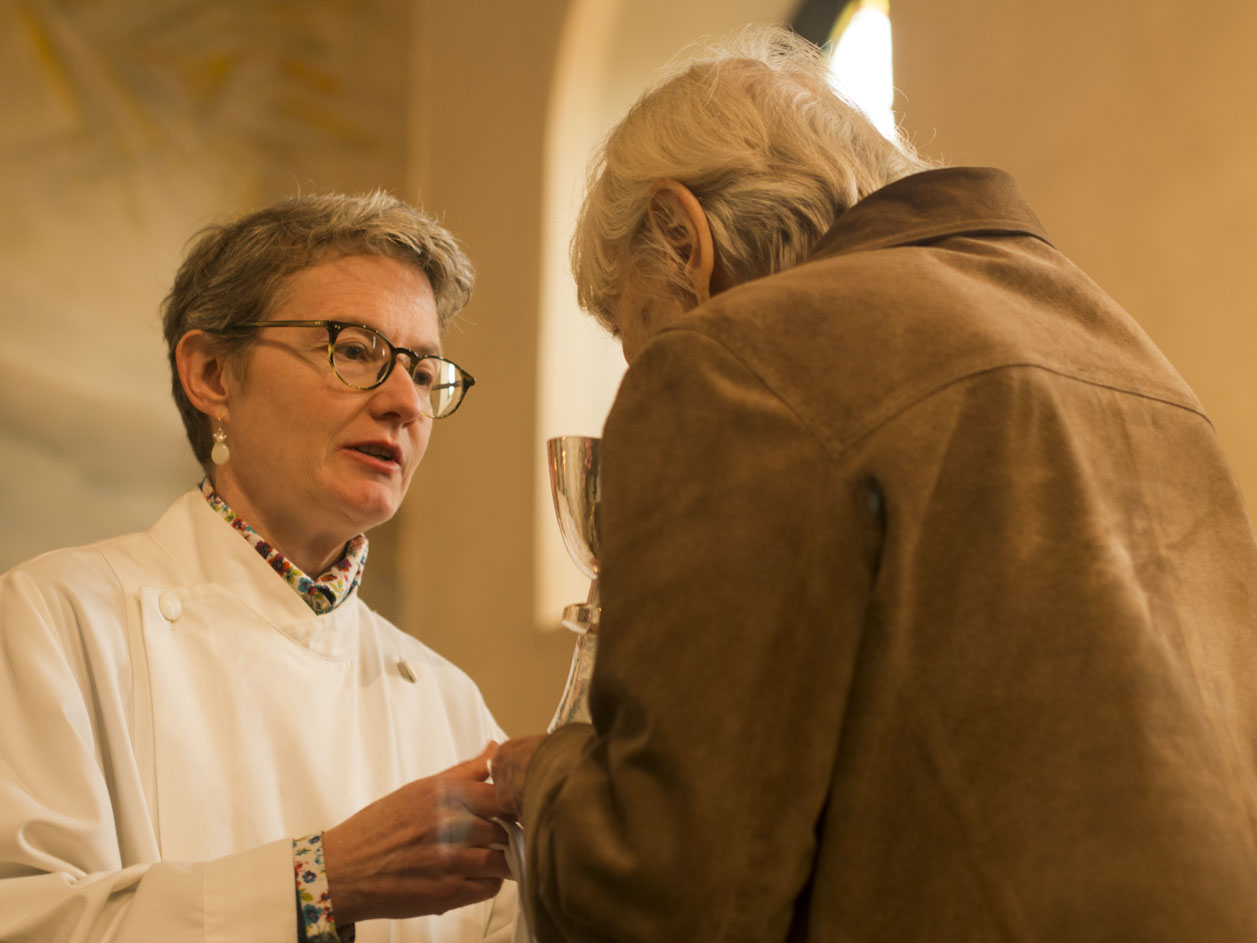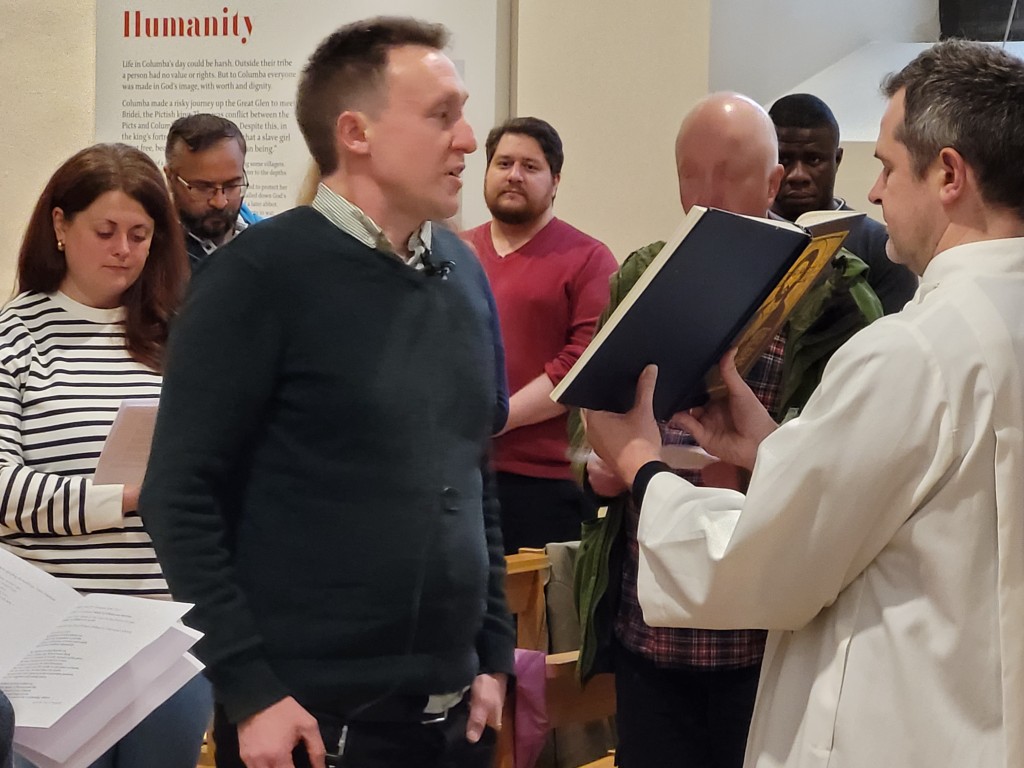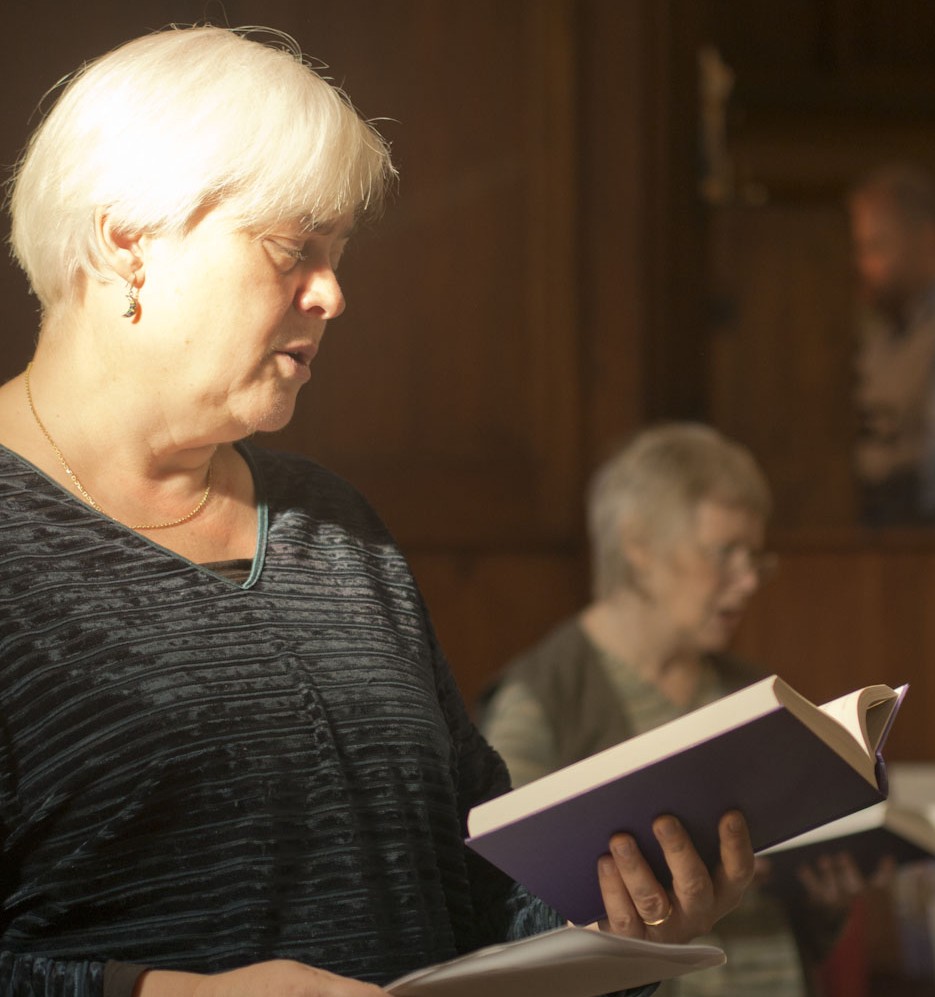Sunday Eucharist
Our life as a congregation is centred around the Sunday Eucharist. The word Eucharist comes from the Greek meaning “thanksgiving” and this service is also known as The Lord’s Supper, Holy Communion or the Mass. It is the central act of worship for the majority of Christians in the world. Whilst much has been written about it, if you are unfamiliar with it, we suggest you simply come and experience it and then, perhaps, seek out someone with whom you can talk about your experience.
Children are very important to the ethos of our worship, even if relatively few in number. In term time they have their own “Upperchurch” group but in every service they share in communion together with the rest of the family. Once a month, usually on the first Sunday, we have an “all-age” communion service. This is not a “children’s service” but a time when we seek to worship, learn and pray in ways that people of any age can access and be involved in.
Music is important to us; we enjoy singing and using different musical settings of the mass throughout the year. We have a fine organ (and a piano) and a team of five players from within our ranks. We have other instrumentalists among us and like to enrich our services from time to time with their musical gifts. We also have an adhoc group of experienced singers who offer anthems on special occasions.
There are refreshments and fellowship in the hall after the Sunday Eucharist. We see this time as a natural extension of the hospitality of Christ offered in the sacrament of communion. In this time of fellowship we celebrate birthdays and other important occasions in the life of our “family” community. The atmosphere is relaxed, friendly, and our children help to create a spirit of “holy chaos” at times! We like that.
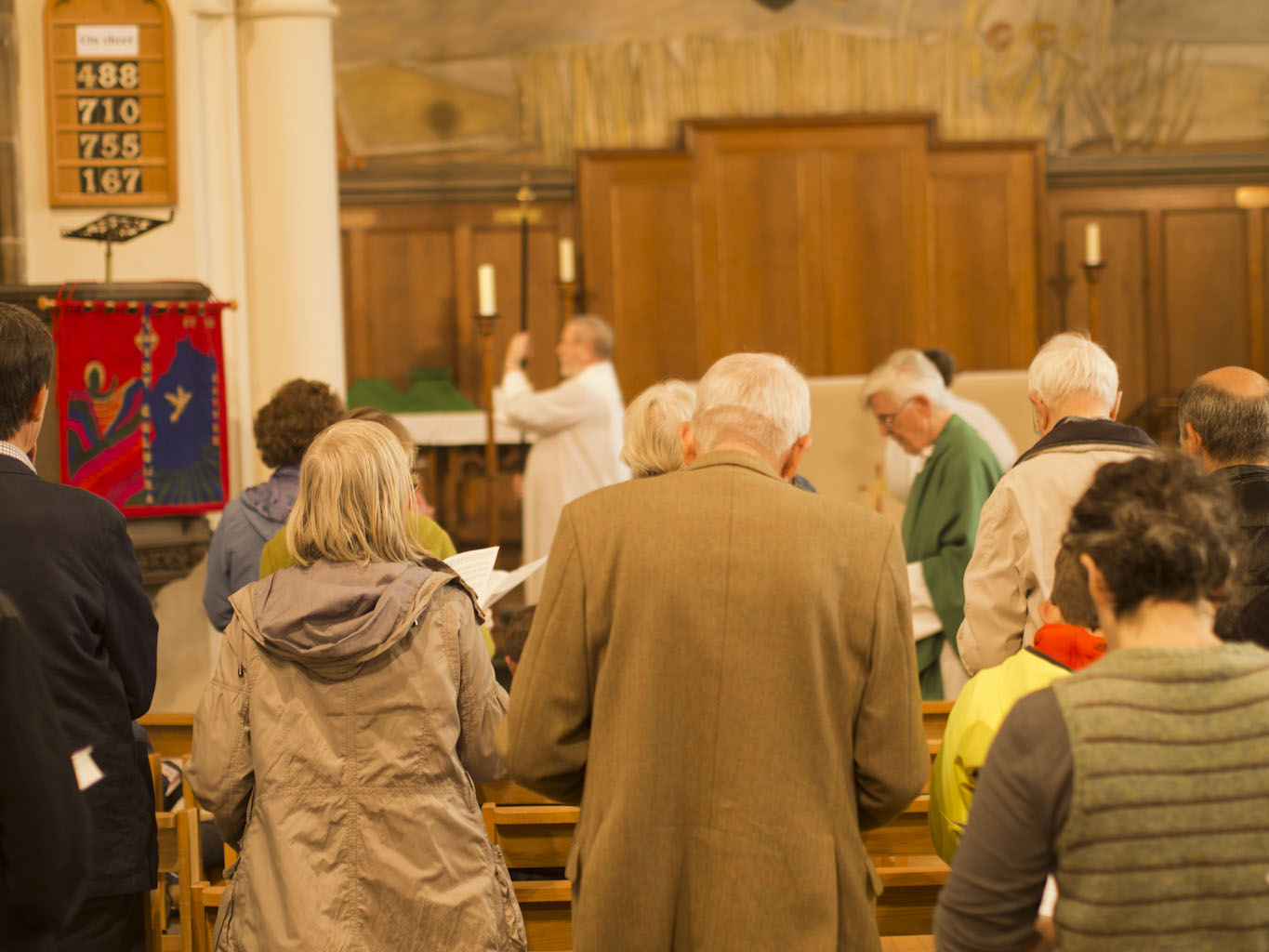
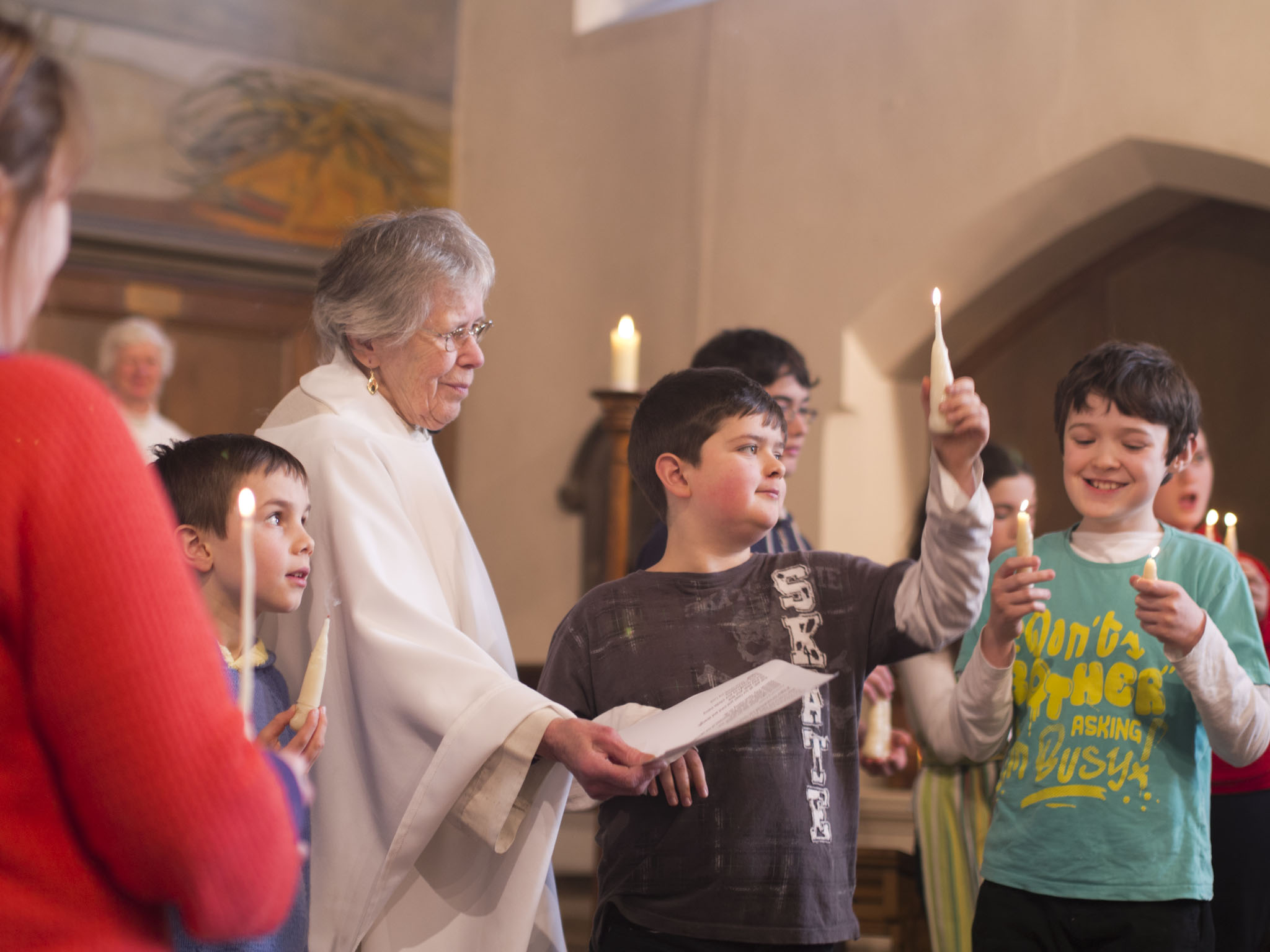
‘Ritual is not to be seen as a content to which people must comply, but as a structure within which they can pulsate and pirouette in unprescribed ways. Ritual should lure people into a festive fantasy, put them in touch with their deepest longings … help them to step into the parade of history and ignite their capacity for creation.’ Harvey Cox
